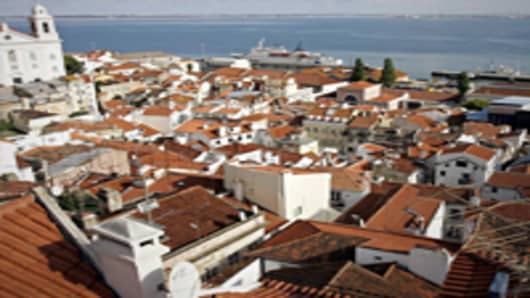Portugal’s parliament is expected to comfortably pass an austerity budget for 2012 on Monday, aiming to regain the confidence of investors who are concerned about the country’s high level of debt.
Prime Minister Passos Coelho has outlined a range of painful measures, including longer working hours for civil servants and higher value-added tax on certain items.
Companies with annual profits of more than 10 million euros will have to pay an additional tax in 2012, Reuters reported.
"Passos Coelho and his party were fans of fairly extreme austerity in the mid 2000s, calling for major budget cuts. This is logically consistent with what they’ve been saying,” David Lea, analyst for Western Europe at Control Risks told CNBC.com.
“There is absolutely no doubt about it,” Antonio Barroso, Western Europe analyst at Eurasia said of the likelihood of the budget being approved.
He said political support for Coelho’s measures, which will push the country further into recession, was overwhelming.
Public support for changes was also greater than it is in other countries—Greece in particular—which have powerful trade unions and have been faced with public outrage over austerity measures. “There’s really a desire for change…People realize that (change is needed) after 10 years of very weak growth and no hope,” Barroso said.
“All these measures will be felt and eventually there will be an increase in discontent,” he said, adding he would not be surprised to see people taking to the streets and protesting within the next two months. He pointed out that the unions in Portugal were very weak and the number of working days lost very low.
“There is clearly a contrast with Greece, and they will comfortably get this through parliament,” Lea said. “Portugal, in my view, is pretty much the outlier of all the troubled (euro zone) economies.”
The others had strong growth and overspent, or in the case of Spain and Ireland had housing bubbles which burst eventually, Lea pointed out. “Portugal has never been able to grow. The growth issue is the big one, as much as fiscal adjustments.”
The country is clearly trying to set itself apart from other troubled euro zone nations by taking decisive action, Barroso said. It is trying to say “we are different,” he said.
The Portuguese government expects that the country can return to growth by 2013 thanks to labor market reforms and other measures outlined in the package aimed at stimulating growth.
But it has a tough task ahead, with the economy set to contract by at least 2 percent in 2012.
“It is going to be very difficult for Portugal to re-establish itself,” Lea said.



